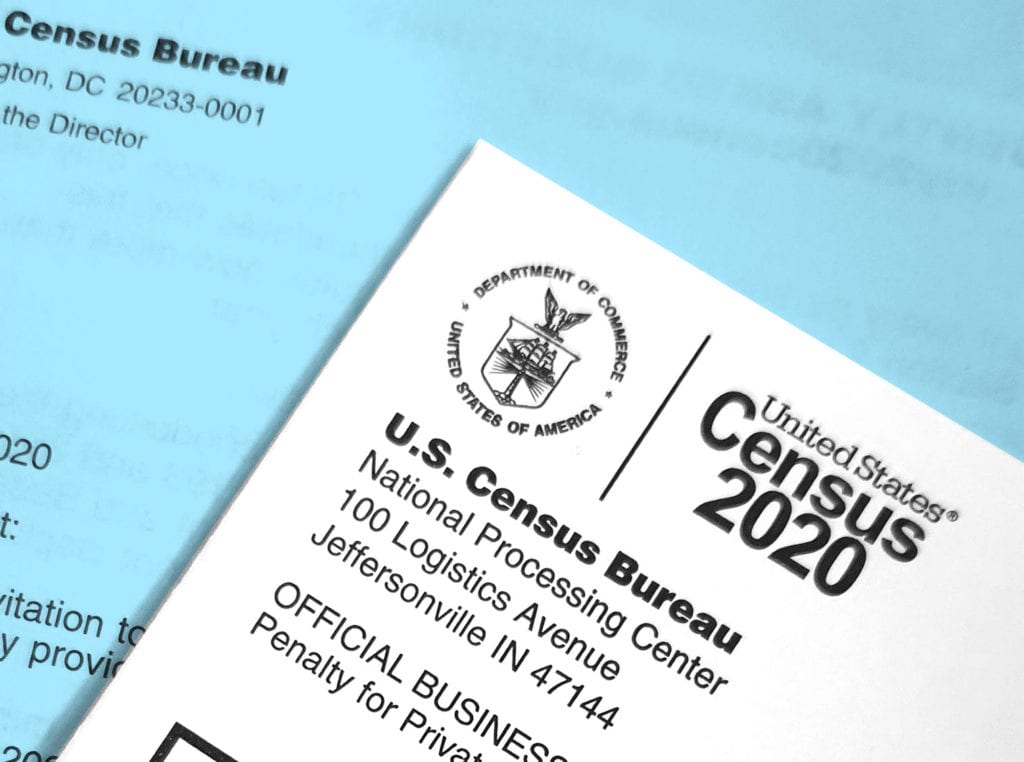Risk of undercount as census deadline nears
Organizers, secretary of state concerned about counting city’s low-response populations

With just under eight weeks to respond to the U.S. census, those who help complete the count are concerned about getting accurate numbers in Boston neighborhoods.
Several populations in the city are at risk of being undercounted, including people of color, immigrants, renters and crowded households.
Boston relies in part on funding from the Massachusetts secretary of state’s office to support initiatives that help ensure a more complete count. Several nonprofit organizations have asked the secretary’s office to release funding previously promised, so that Boston can get the funding and representation it needs for the next 10 years.
According to the letter, signed by the Massachusetts Voter Table, Massachusetts Coalition for the Homeless, Massachusetts Immigrant and Refugee Advocacy Coalition and several other organizations on Aug. 6, there was $1,316,055 remaining in the Complete Count Grant Fund and an additional $986,055 for community-based organizations and $330,000 for municipalities in the FY19 supplemental budget for hard-to-count communities.
“The median census response rate for the 86 cities and towns eligible for supplemental state funding is 56.9%,” the letter reads.
Beth Huang, director of the Massachusetts Voter Table, said that if more funding were available, they’d be able to leverage this moment of racial unrest.
“We can then connect that to a message about why people deserve to be seen, heard and counted in the next 10 years,” Huang told the Banner. “But to do that we need resources, and the secretary of state is sitting on $1.3 million.”
Though state funding for municipalities has been distributed, before Friday Boston received no state funding, Huang says.
On the nonprofit side, organizations can receive up to $250,000 from the Complete Count Grant. In order to receive money, groups have to prove a history of working within hard-to-count communities. Huang said she has seen amazing work done in the community through billboards, phone banking sessions and community-centered events that get the count out.
The secretary’s census office is currently reviewing the letter, spokesperson Debra O’Malley said.
“We were not allowed to send the money until last week,” she told the Banner.
When the U.S. Census Bureau shut down its facilities in March, funding promised in fiscal year 2019 was put on hold, and the Massachusetts office was later permitted to use the funds for fiscal year 2020. O’Malley said the city of Boston received a check from the state the same day they received the letter.
“We’re concerned because we are seeing a low response rate,” she said.
Census offices were originally recording self-responses from March 12 to July 31, but the deadline was later extended to October 30. News broke Thursday, July 30 that the Bureau would stop knocking on doors a month earlier, at the end of September, causing widespread concern.
The CUNY Center for Urban Research, which tracks the count as it happens nationally and compares it to 2010 data, shows that Massachusetts was 65.5% counted as of August 10. That’s not far from 2010’s final count: 68.8%. According to their map, the hardest to count tracts in Suffolk county include most of Dorchester (40% to 50% counted), and some portions of the South End are at only 15% to 30%.
“We think about how much Boston could lose out on federal funding for affordable housing. We think about how many people might get displaced because there isn’t an accurate count in the 2020 census,” Huang said.
O’Malley said Galvin’s office is opposed to the earlier deadline. Though the news came out July 30, the office was formally notified four days later.
“We hope the count will go through October,” she said, adding that they’re going to continue dispersing funding “just in case it doesn’t.”






